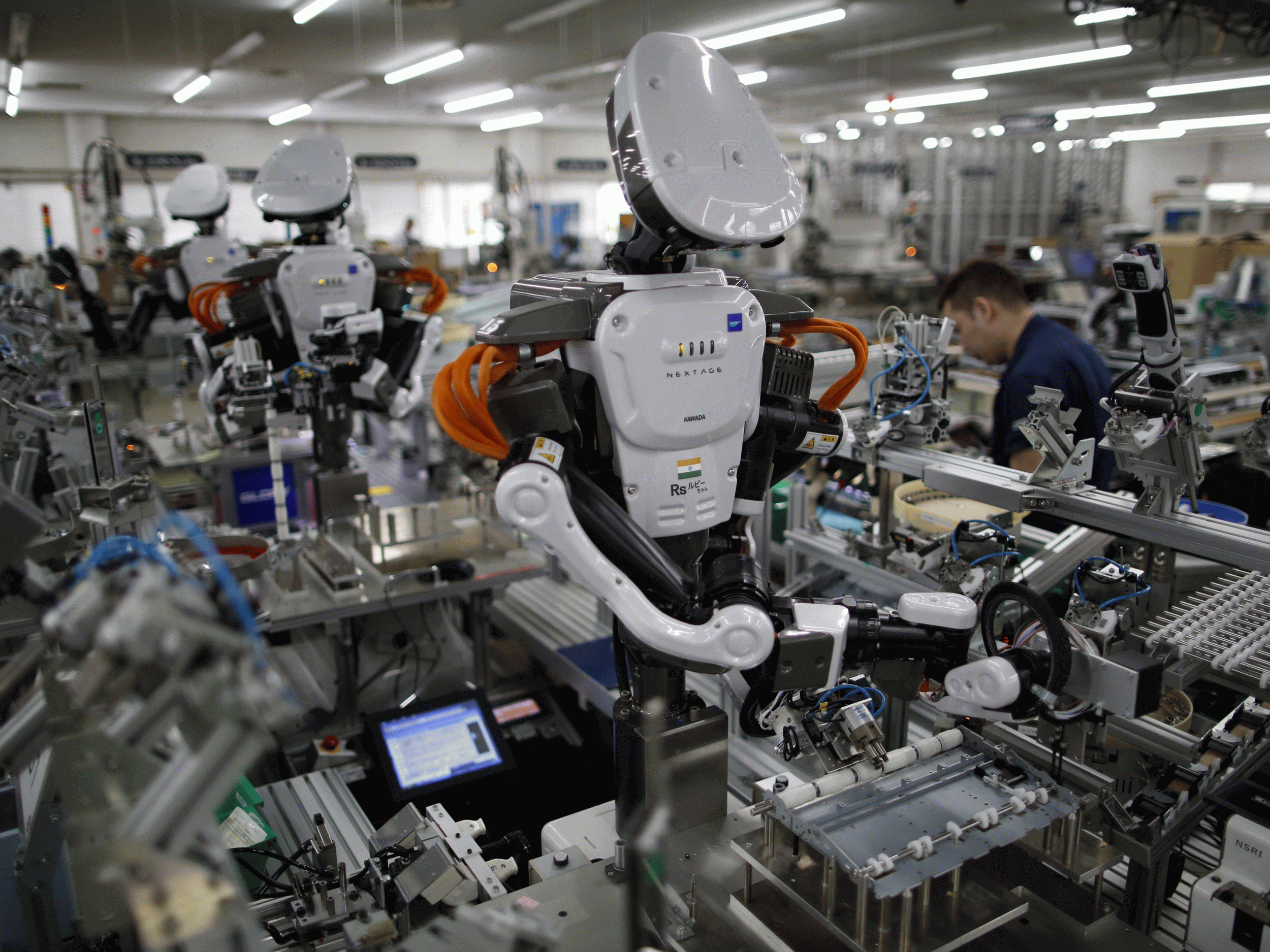UK workers think robots and the falling pound pose greatest risk to their jobs
Earlier this week, a survey by the Confederation of British Industry in association with IBM showed that almost half of firms believe the current wave of technology will fundamentally transform their industry

UK workers are more worried about losing their jobs to machines or because of the falling value of the pound than they are concerned about being squeezed out of work by immigration and globalisation, according to a new study.
Research commissioned by job site Indeed, based on a survey of more than 1,500 UK adults, shows that the falling value of sterling was perceived to be posing the greatest risk to jobs, followed by automation and outsourcing.
The pound has fallen around 13 per cent against the US dollar since last years’ Brexit referendum and remains volatile.
As a result of the slump, import costs have already risen for many goods from abroad, and trade bodies for the construction, services and car industry have repeatedly warned of the irreparable damage that leaving the European Union with no trade deal might do.
Brexit itself was only perceived to be the fourth greatest risk by respondents to Friday’s survey, followed by globalisation, immigration and changes to the benefits system.
Mariano Mamertino, an economist at Indeed, said that in the run-up to the election, campaigns had largely been focussed on issues around Brexit, immigration and tax.
“However, these results show that the average worker is much more unnerved by the prospect of being replaced by a machine and companies moving jobs abroad, rather than competition from immigration,” he added.
He said that while it is impossible to know exactly which jobs are safe in the face of automation, “everyone can prepare for the future by building up transferable, non-routine skills that can be applied across a wide array of occupations”.
Earlier this week, a survey by the Confederation of British Industry in association with IBM showed that almost half of firms believe the current wave of technology will fundamentally transform their industry, and only a third said that they think their business has the skills to adapt accordingly.
A separate report published by professional services firm PwC in March showed that up to 30 per cent of UK jobs are at risk of being taken over by robots and artificial intelligence by the early 2030s.
That report argued that the likelihood of automation is highest in sectors including transport, manufacturing, wholesale and retail.
Education, health and social work are less at risk and— as a result of that— male workers are more likely to see their jobs taken over by robots than their female counterparts.
Subscribe to Independent Premium to bookmark this article
Want to bookmark your favourite articles and stories to read or reference later? Start your Independent Premium subscription today.

Join our commenting forum
Join thought-provoking conversations, follow other Independent readers and see their replies